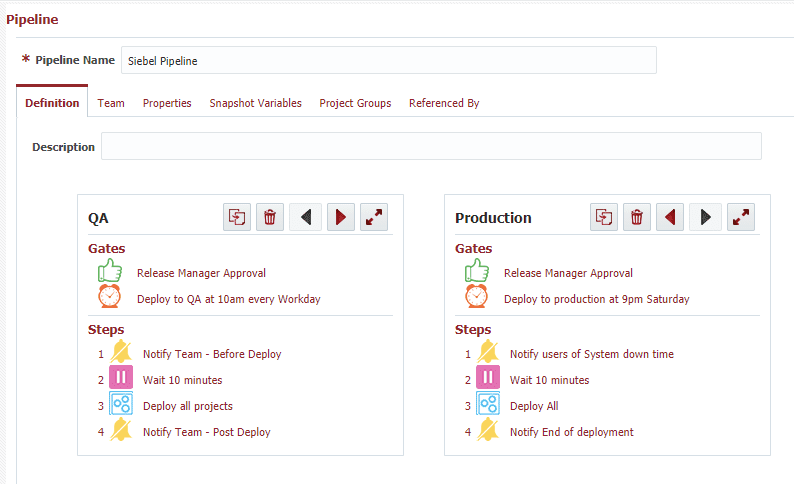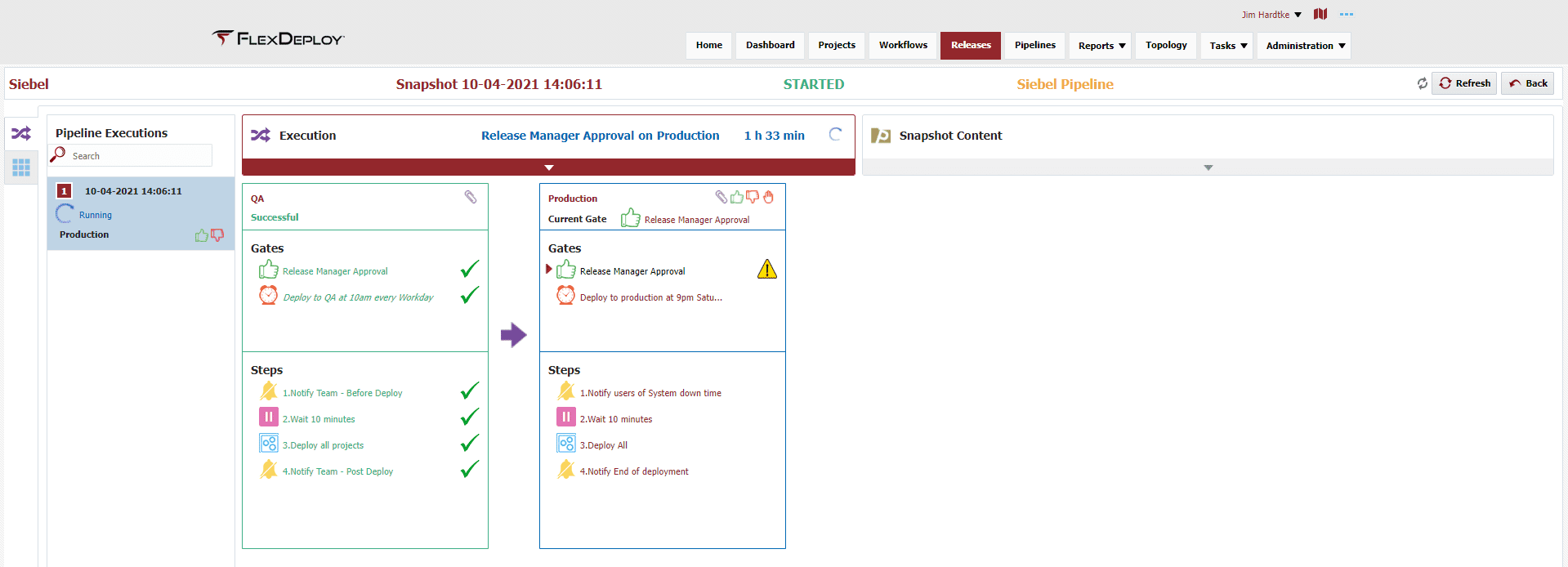In a previous blog, we illustrated how to use workflows and projects to automate the build and deployment process for Siebel repository objects using FlexDeploy. Automating these processes eliminates the need for manual activities historically required to migrate Siebel repository objects. With FlexDeploy, users no longer have to manually create connections and migration plans in the Siebel migration application, nor do they have to copy watermark, zip, and other files between source and target servers. Not only are these tedious and error-prone tasks eliminated, but it frees up developers to do more exciting and value-add work.
In this blog, we will illustrate how to extend the automation of Siebel deployments using a release and pipeline. Using a release/pipeline allows FlexDeploy users to automate deployments of myriad technologies across environments, incorporating approvals, schedules, notifications, automated tests, and more. It takes the foundation of automated deployments a step further.
Let’s see how…
Pipeline
FlexDeploy’s Pipelines are re-usable process flows that orchestrates the delivery of code snapshots (a group of project and project versions to be deployed) across defined environments with any necessary checks and approvals. Each environment (stage) can have gates and steps. A gate will block entry into the stage until all conditions are satisfied. The steps define the means of delivering the code into the environment.
FlexDeploy allows you to define a Pipeline with a simple drag and drop editor, providing complete flexibility based on your enterprise requirements.

In the example above, we’ve created 2 environments – QA, and Production. For both QA and Production, we have set an approval and a schedule gate. This means that a Release Manager must approve, and the schedule must be met before deployment into the QA and Production environments can begin.
After the gates are satisfied in each environment, a notification will be sent out to notify users that the system will be coming down for maintenance in 10 minutes. After that, the process waits for 10 minutes, performs the deployments, and finally notifies the users that the deployment process is complete.
For many installations of FlexDeploy, the approval process is delegated to external tools like ServiceNow or Jira.
To integrate with these external tools, the approval gate in the pipeline would be swapped out for an external approval gate. For example, if FlexDeploy is integrated with ServiceNow, it will wait for the linked change request to be approved in ServiceNow. Once approved in ServiceNow, the deployment steps will be executed as per the Production Schedule.
FlexDeploy’s power-packed Pipeline orchestration provides many options for gates and steps, making it easy to map to your SDLC. If the built-in options are not enough, custom gates and steps can be used to satisfy any requirement.
Release
After configuring the Pipeline, we can now create a Release. A Release is a collection of heterogeneous projects that will be deployed through the newly created Pipeline. Create a new Release and select the corresponding Pipeline to flow through.
You can add any number of Projects by clicking on the Add Projects button. We only added the Siebel project to this release, but you can add any project using any technology to this same release. We can add many different types of Projects, including non-Siebel related Projects, and deploy them together through a set of environments using the Pipeline.

After adding the Projects for the release, simply click on the Create Snapshot button to initiate the migration. Once the Snapshot creation is submitted, FlexDeploy connects to the build environment, exports the source for all the Projects in the release, and executes the release through the defined pipeline.
Release Dashboard
FlexDeploy’s release dashboard will show where changes are in the lifecycle. The dashboard will identify any failures such that you can drill into the details to fix issues and keep the continuous deployment going.

Conclusion
FlexDeploy enables faster, higher-quality software delivery for Siebel and many more applications in your enterprise. FlexDeploy for Siebel is an easy and flexible solution for end-to-end release automation with internal/external approvals, notifications, and complete visibility. You can take advantage of these great new capabilities by upgrading to FlexDeploy 5.6 or contacting us to learn more.



